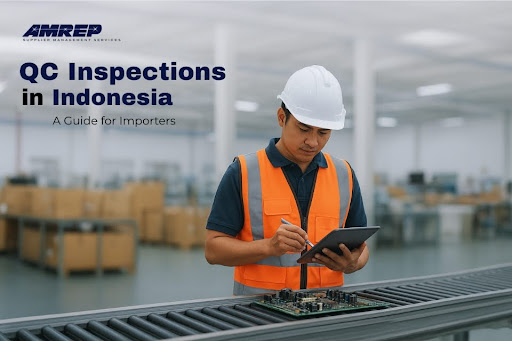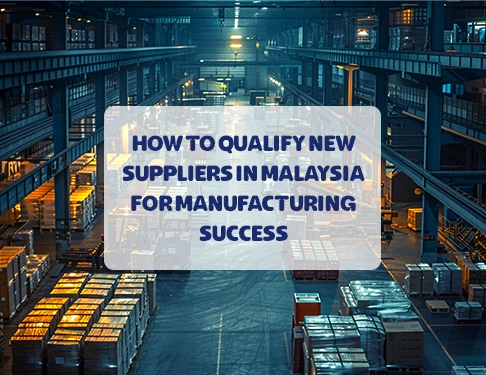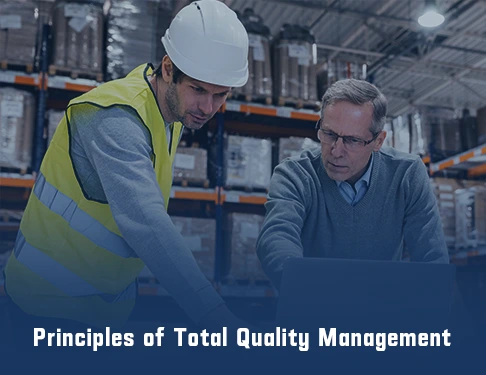Guide to Qualifying New Suppliers in Malaysia for Manufacturing Success
Malaysia is a premier manufacturing hub in Southeast Asia. According to the Malaysian Investment Development Authority (MIDA), “Malaysia, with its extensive trade....
By AMREP | Posted on October 10, 2025
Indonesia has become a preferred global sourcing hub, offering competitive costs, skilled labour, and a diverse manufacturing base. According to the World Bank (2023), Indonesia’s manufacturing sector contributed 18.67% to the national GDP, highlighting its growing role in global trade.
However, as factories grow in number and supply chains stretch across multiple islands and regions, maintaining consistent product quality becomes increasingly complex. Even a single oversight in quality control can turn a profitable order into a costly setback.
By implementing proper quality control (QC) inspections, importers can avoid costly mistakes and shipment delays. They can also ensure compliance with international regulations like EU REACH and U.S. CPSIA while building stronger, more reliable relationships with their suppliers.
This guide shares quality control inspections and best practices to help importers ensure quality and reduce risks when sourcing from Indonesia.

To maintain consistent product standards, importers should carry out quality control inspections at key stages of production. Each inspection serves a specific purpose, allowing you to identify and resolve issues before they escalate. By following a structured inspection process, importers can ensure that every shipment meets their quality expectations and complies with international regulations. The main types of inspections used in Indonesia include the following:
A pre-production inspection takes place before manufacturing begins. It ensures that the supplier is fully prepared to start production according to your specifications. This stage focuses on raw materials, components, and factory readiness.
A during-production inspection occurs when approximately 20% to 50% of the goods are completed. It helps monitor product quality, identify early defects, and ensure that the production schedule is on track.
A pre-shipment inspection is performed once all goods are produced and packed, but before shipment. It provides a final quality assessment to ensure that products meet the agreed-upon standards.
A container loading check takes place at the final stage of the supply chain, during the packing and loading process. It ensures that the correct products are securely loaded and properly handled before export.
For products requiring strict safety or regulatory compliance, laboratory testing provides an extra level of assurance. It is especially important for categories such as food, cosmetics, textiles, and electronics.
Choosing the right inspection partner is just as important as the inspection process itself. A reliable partner acts as your representative on the ground, ensuring that every stage of production meets your quality standards and compliance requirements. When selecting an inspection company in Indonesia, consider the following key factors:
Managing quality control effectively in Indonesia requires a proactive and organized approach. Importers who set clear expectations, communicate regularly, and track performance throughout production are more likely to achieve consistent results. The following best practices can help you strengthen your quality management process and build reliable supplier relationships.
Even experienced importers can face quality issues if key steps are overlooked. Avoiding common mistakes in the inspection process can save time, money, and protect your brand reputation. Being aware of the following pitfalls helps maintain stronger supplier relationships and better control over product quality.
Understanding inspection costs and timelines helps importers plan effectively and keep production on track.
Inspection fees in Indonesia are affordable, typically ranging from USD 200–300 per man-day, depending on product type, factory location, and inspection scope. Costs may be slightly higher for remote sites or specialized QC testing and checks.
Most inspections can be scheduled within 24–48 hours, with detailed reports delivered within one working day. Planning helps avoid delays during peak production seasons or national holidays.
While Indonesia shares similarities with other major sourcing countries like China and Vietnam, several unique factors influence how quality control is managed. Understanding these differences helps importers plan more effectively and set realistic expectations.
Indonesia’s factories are generally smaller than those in China. Production is often more manual, which allows flexibility for custom orders but can also lead to variations in quality.
The supplier network in Indonesia is less centralized than in Vietnam or China. Factories are spread across islands, which can make logistics and inspections more time-consuming.
Quality standards vary widely between suppliers. While some large factories follow international certifications, many smaller producers rely on traditional methods and may lack formal QC systems.
Indonesia is improving its manufacturing infrastructure and export quality through government initiatives, but regional differences in logistics and accessibility still affect consistency.
Discover how artificial intelligence is reshaping quality control. Read our blog on the need for QC inspections in the age of AI.
Quality control is essential to ensure that products sourced from Indonesia meet international standards. A structured inspection process helps importers maintain quality, avoid costly errors, and build stronger supplier relationships. By defining clear specifications, inspecting at every stage, and working with experienced local experts, importers can protect their investments and brand reputation.
AMREP Inspect offers professional quality inspection services across Indonesia. Our local teams help you monitor production, reduce risks, and deliver products that meet global expectations.
Partner with AMREP Inspect today to ensure consistent quality and a reliable sourcing network in Indonesia.
Contact Us To See What We Can Do
Call Us
Mon - Sat 9.00 - 18.00
Sunday Closed


12 - May 2025
12
May
2025
Malaysia is a premier manufacturing hub in Southeast Asia. According to the Malaysian Investment Development Authority (MIDA), “Malaysia, with its extensive trade....

22 - April 2025
22
April
2025
Healthcare is rapidly evolving, ensuring consistent and high-quality patient care. Total Quality Management (TQM) in healthcare is more than just a buzzword—it is a powerful....

16 - April 2025
16
April
2025
Total Quality Management (TQM) is a mindset that involves everyone in the organization working toward a common goal: achieving excellence through quality. From....
